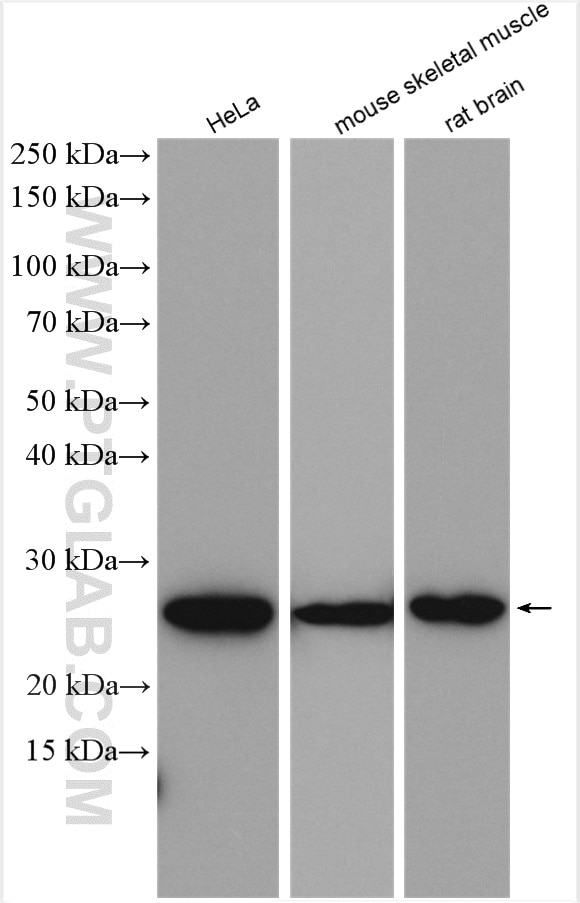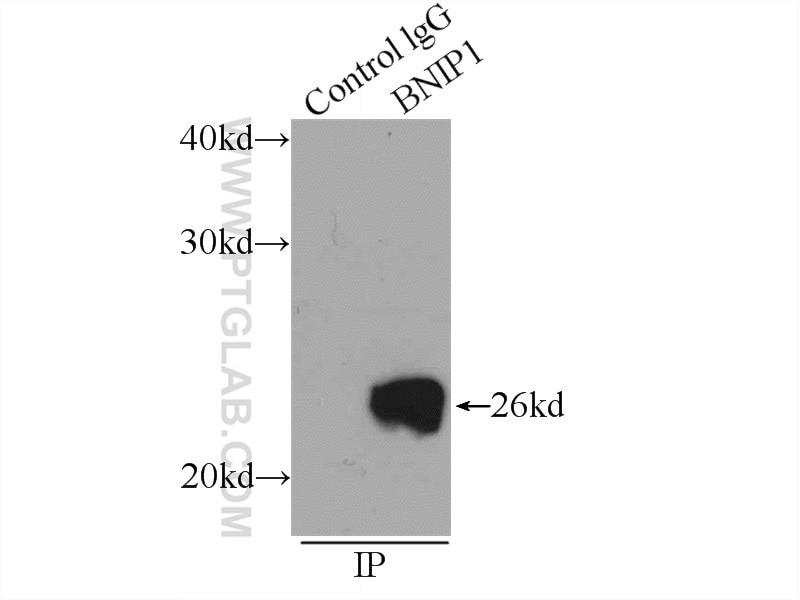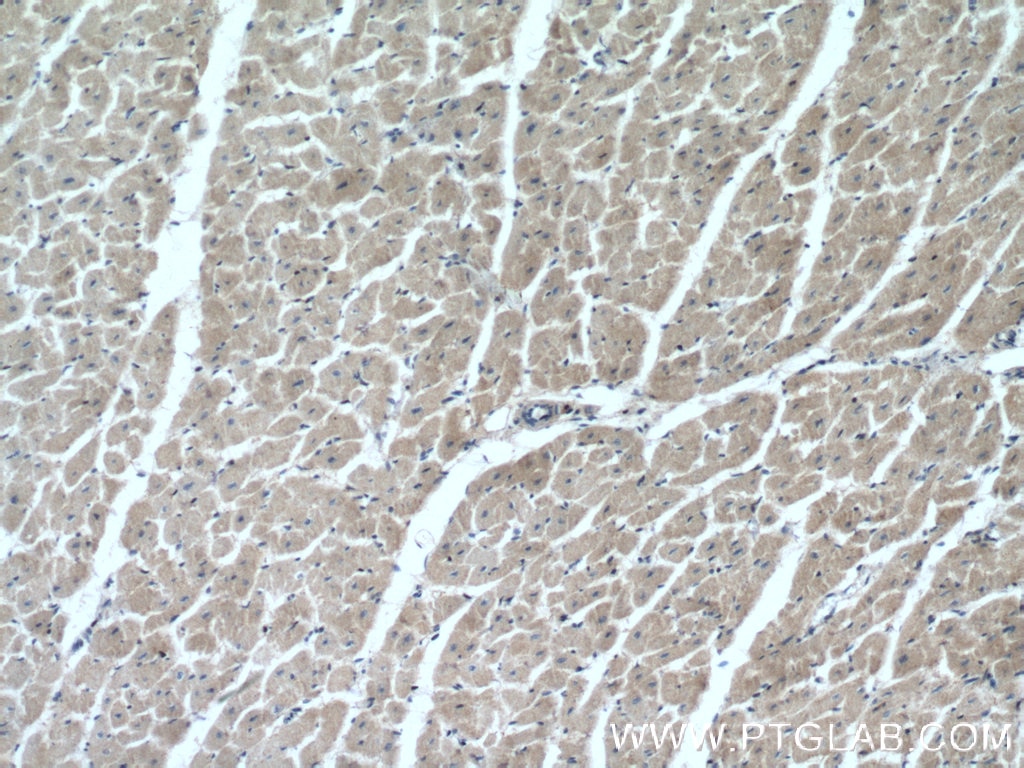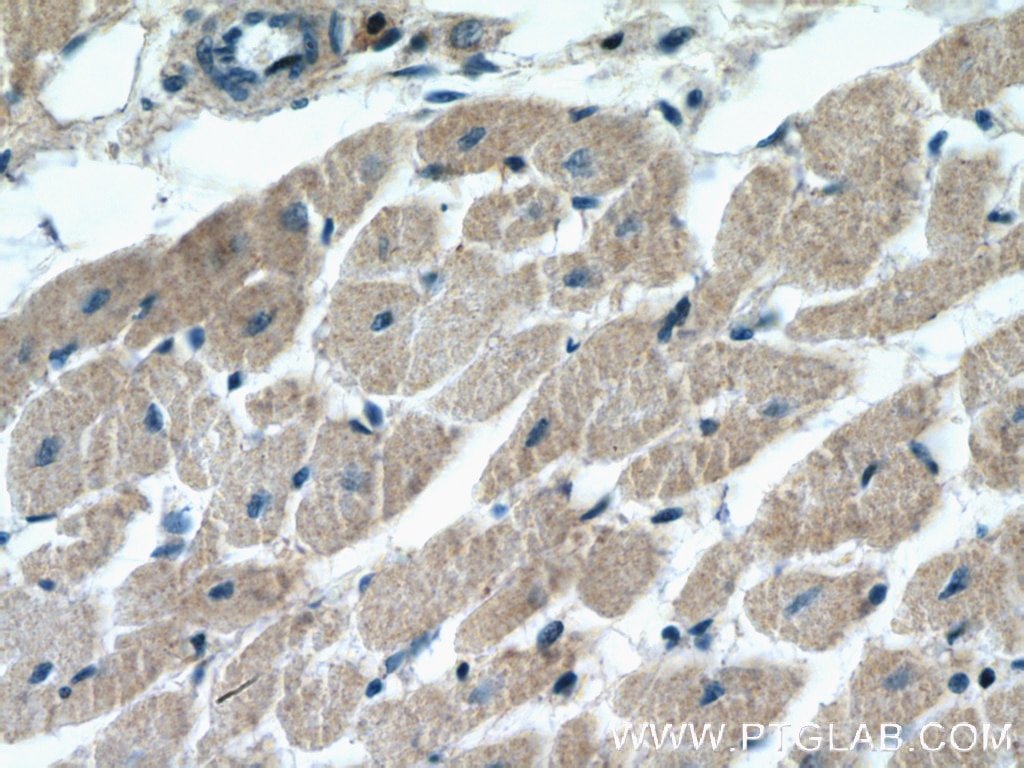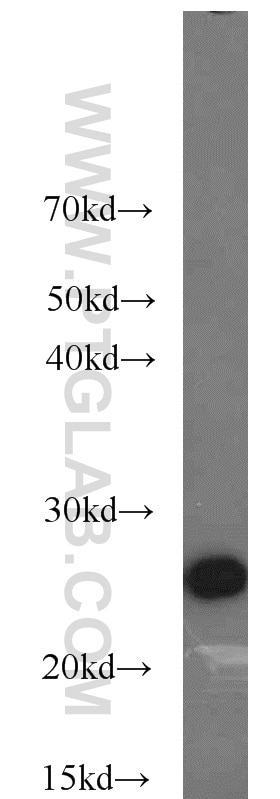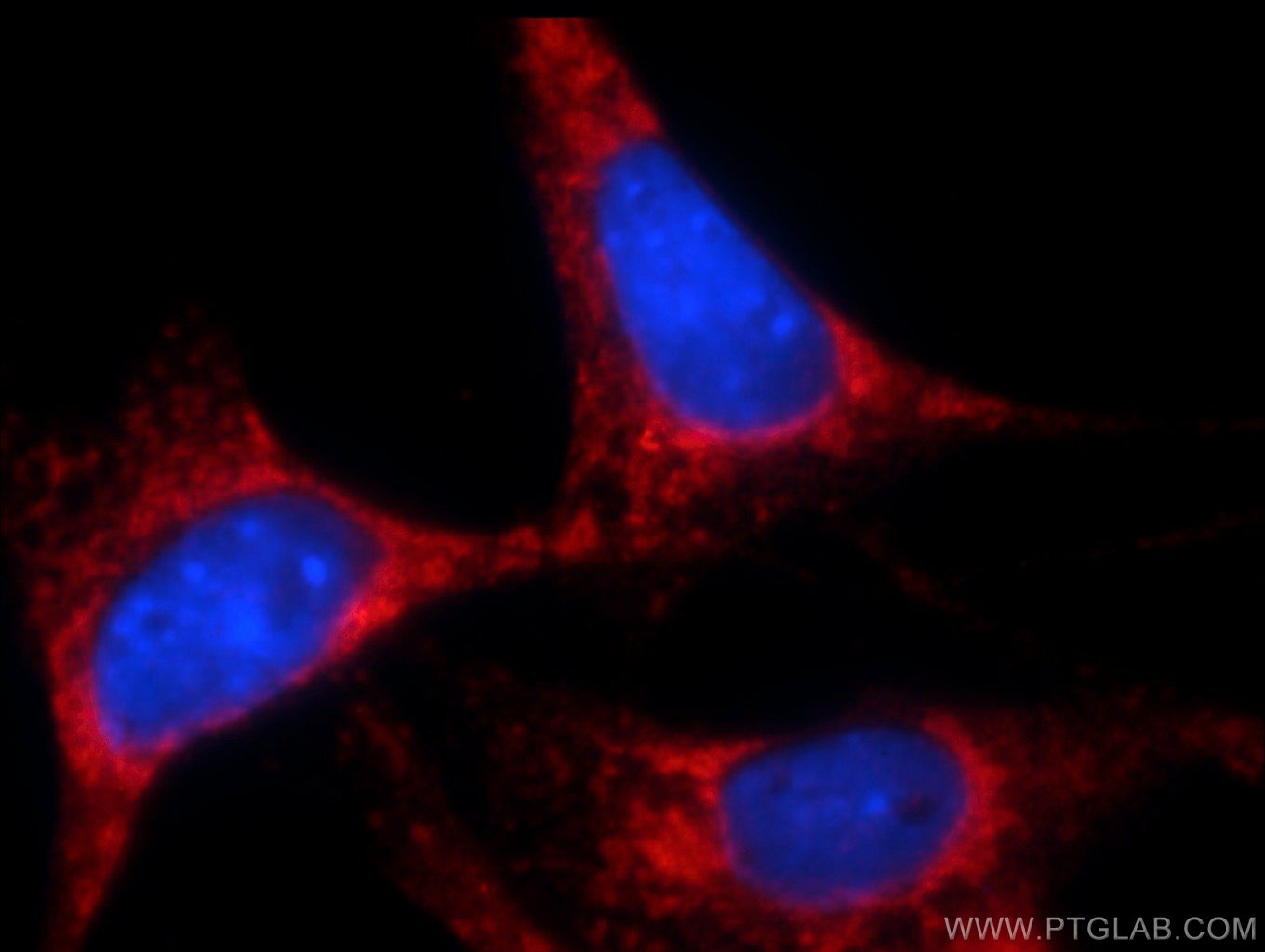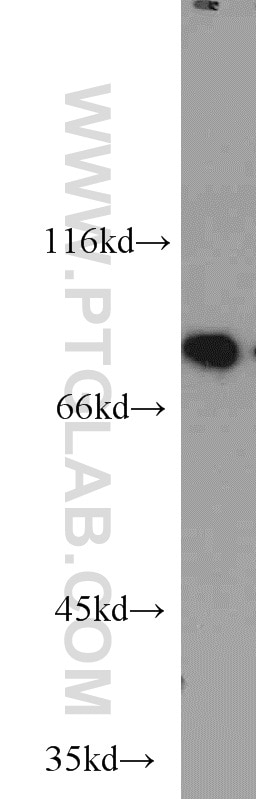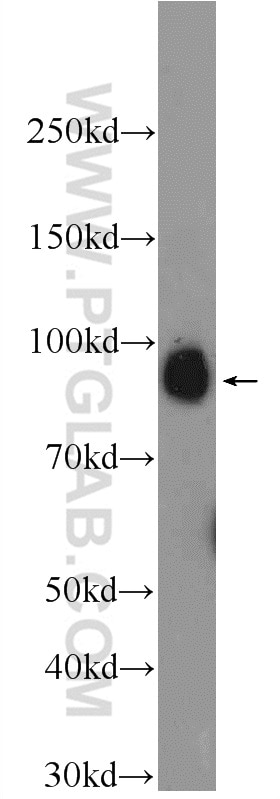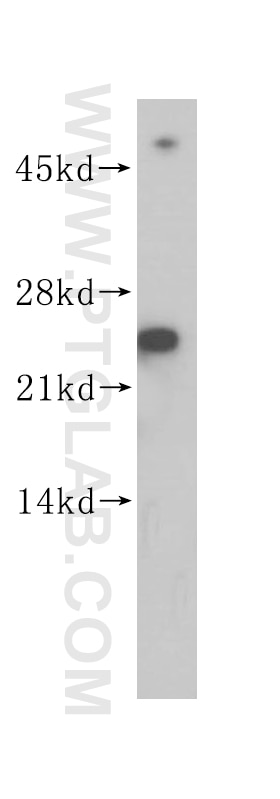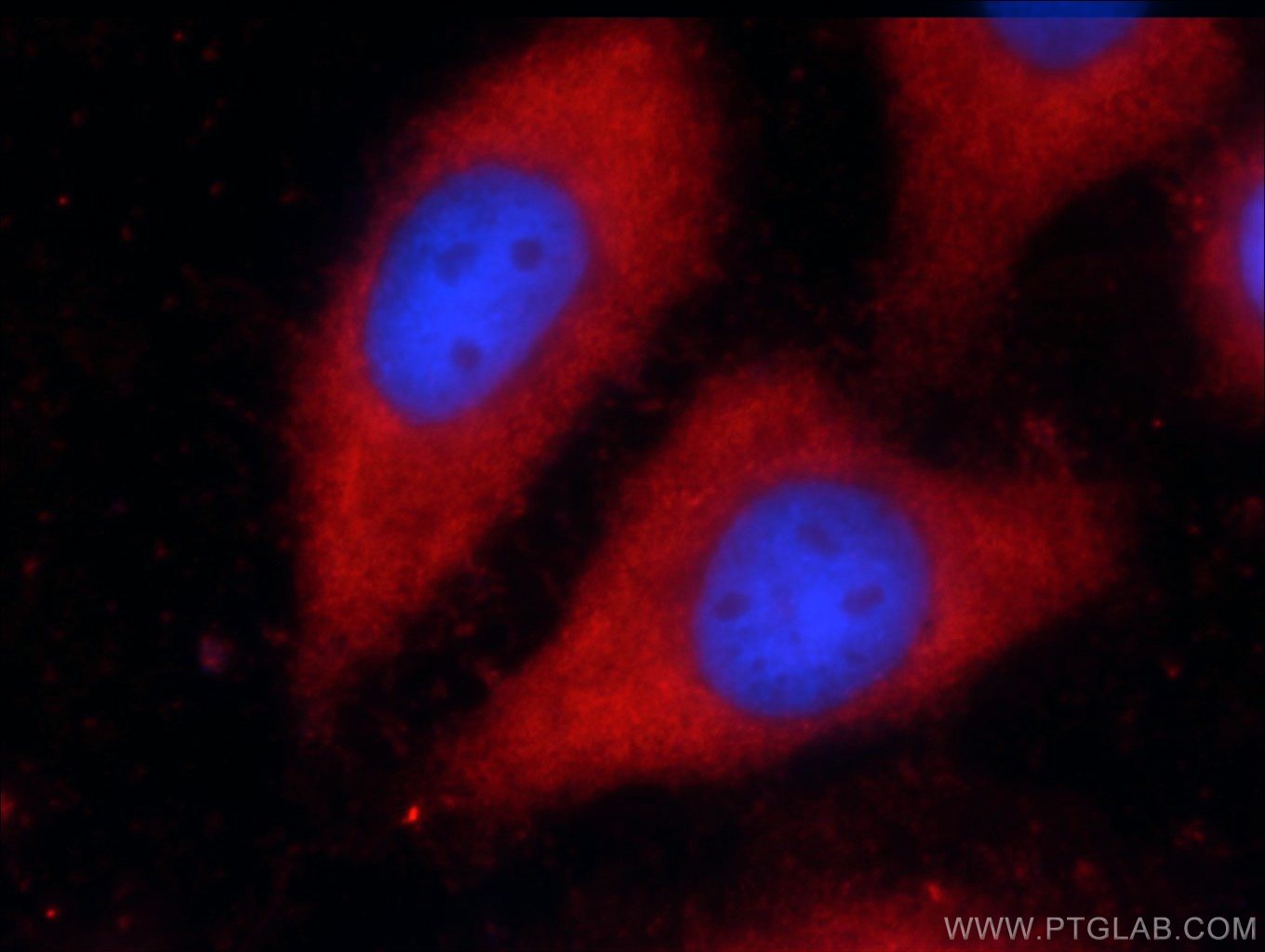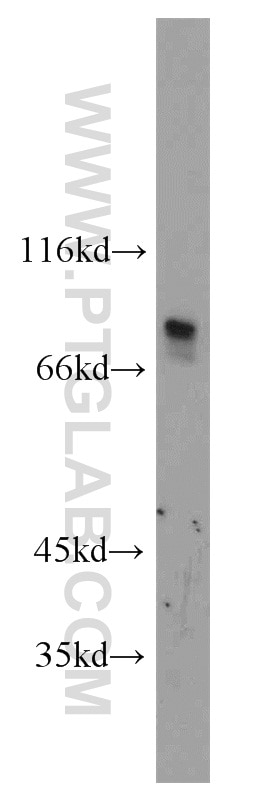BNIP1 Polyklonaler Antikörper
BNIP1 Polyklonal Antikörper für IHC, IP, WB,ELISA
Wirt / Isotyp
Kaninchen / IgG
Getestete Reaktivität
human, Maus, Ratte
Anwendung
WB, IP, IHC, IF, ELISA
Konjugation
Unkonjugiert
Kat-Nr. : 15964-1-AP
Synonyme
Galerie der Validierungsdaten
Geprüfte Anwendungen
| Erfolgreiche Detektion in WB | HeLa-Zellen, Maus-Skelettmuskelgewebe, Rattenhirngewebe |
| Erfolgreiche IP | Maushirngewebe |
| Erfolgreiche Detektion in IHC | humanes Herzgewebe Hinweis: Antigendemaskierung mit TE-Puffer pH 9,0 empfohlen. (*) Wahlweise kann die Antigendemaskierung auch mit Citratpuffer pH 6,0 erfolgen. |
Empfohlene Verdünnung
| Anwendung | Verdünnung |
|---|---|
| Western Blot (WB) | WB : 1:500-1:2000 |
| Immunpräzipitation (IP) | IP : 0.5-4.0 ug for 1.0-3.0 mg of total protein lysate |
| Immunhistochemie (IHC) | IHC : 1:50-1:500 |
| It is recommended that this reagent should be titrated in each testing system to obtain optimal results. | |
| Sample-dependent, check data in validation data gallery | |
Veröffentlichte Anwendungen
| WB | See 3 publications below |
| IF | See 3 publications below |
| IP | See 1 publications below |
Produktinformation
15964-1-AP bindet in WB, IP, IHC, IF, ELISA BNIP1 und zeigt Reaktivität mit human, Maus, Ratten
| Getestete Reaktivität | human, Maus, Ratte |
| In Publikationen genannte Reaktivität | human |
| Wirt / Isotyp | Kaninchen / IgG |
| Klonalität | Polyklonal |
| Typ | Antikörper |
| Immunogen | BNIP1 fusion protein Ag8737 |
| Vollständiger Name | BCL2/adenovirus E1B 19kDa interacting protein 1 |
| Berechnetes Molekulargewicht | 228 aa, 26 kDa |
| Beobachtetes Molekulargewicht | 26 kDa |
| GenBank-Zugangsnummer | BC010959 |
| Gene symbol | BNIP1 |
| Gene ID (NCBI) | 662 |
| Konjugation | Unkonjugiert |
| Form | Liquid |
| Reinigungsmethode | Antigen-Affinitätsreinigung |
| Lagerungspuffer | PBS mit 0.02% Natriumazid und 50% Glycerin pH 7.3. |
| Lagerungsbedingungen | Bei -20°C lagern. Nach dem Versand ein Jahr lang stabil Aliquotieren ist bei -20oC Lagerung nicht notwendig. 20ul Größen enthalten 0,1% BSA. |
Hintergrundinformationen
BNIP1 is a member of the BCL2/adenovirus E1B 19 kDa-interacting protein (BNIP) family. The encoded protein is predominantly localized to the endoplasmic reticulum (ER), is a pro-apoptotic Bcl-2 homology domain 3 (BH3)-only protein. BNIP1, also called SEC20L, is a component of a SNARE complex consisting of STX18, USE1L, BNIP1/SEC20L and SEC22B which is involved in apoptosis and ER membrane fusion. Recent reports showed that expression of BNIP1 induced mitochondrial fragmentation in a BH3 domain-dependent manner via increasing dynamin-related protein 1 (Drp1) expression. RNF185 is a mitochondrial ubiquitin E3 ligase that regulates selective mitochondrial autophagy, BNIP1 colocalizes with RNF185 at mitochondria and is polyubiquitinated by RNF185 through K63-based ubiquitin linkage in vivo and modulatemitochondrial homeostasis through autophagy.
Protokolle
| Produktspezifische Protokolle | |
|---|---|
| WB protocol for BNIP1 antibody 15964-1-AP | Protokoll herunterladen |
| IHC protocol for BNIP1 antibody 15964-1-AP | Protokoll herunterladen |
| IP protocol for BNIP1 antibody 15964-1-AP | Protokoll herunterladen |
| Standard-Protokolle | |
|---|---|
| Klicken Sie hier, um unsere Standardprotokolle anzuzeigen |
Publikationen
| Species | Application | Title |
|---|---|---|
Cell Signal A novel RING finger E3 ligase RNF186 regulate ER stress-mediated apoptosis through interaction with BNip1. | ||
Hum Mutat A homozygous hypomorphic BNIP1 variant causes an increase in autophagosomes and reduced autophagic flux and results in a spondylo-epiphyseal dysplasia. | ||
PLoS One RNF185, a novel mitochondrial ubiquitin E3 ligase, regulates autophagy through interaction with BNIP1. | ||
J Biol Chem Comparative proximity biotinylation implicates the small GTPase RAB18 in sterol mobilization and biosynthesis |
